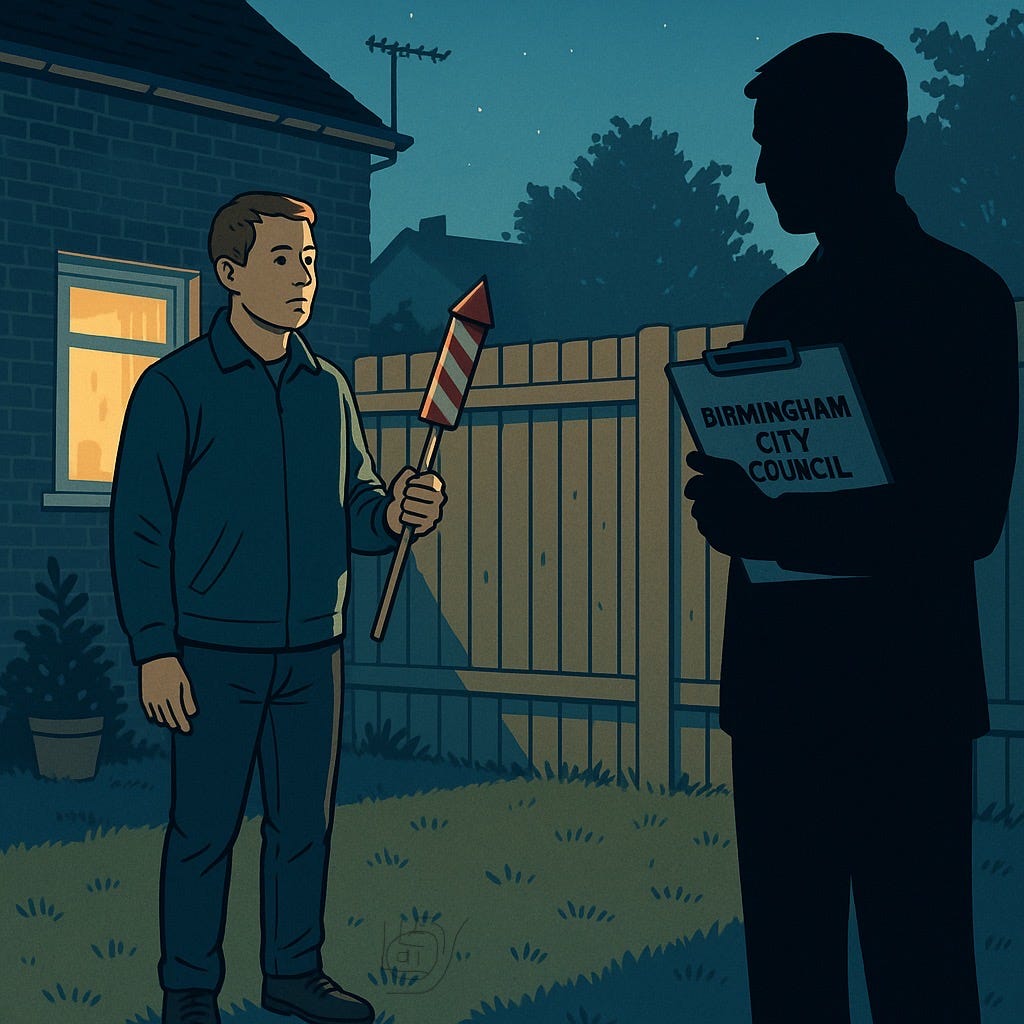THE DISTANCE
Labour MP Sarah Owen’s Fireworks Bill is not malicious, but it tells a story. It shows a party that no longer knows how to trust the people who built it.
Sarah Owen, Labour MP for Luton North, has tabled a Private Member’s Bill to restrict the sale and use of fireworks. If it ever became law, the average family lighting a few rockets in the garden might soon find themselves needing a licence, a safety course, and a signed promise not to disturb the dog.
No doubt she means well. She talks of frightened pets, veterans with PTSD, and the need for safety and civility. Yet behind the politeness lies something deeper that runs through modern Labour. It is the instinct to manage what ordinary people have always done freely.
Fireworks, bonfires and the fifth of November are not just noise and sparks. They are ritual, they are memory, and they are the faint echo of something far older than the modern state. They are the right of the people to gather, to make noise, and to laugh at authority’s expense.
We forget how that story began. Guy Fawkes was not the grand villain of the nursery rhyme. He was a hired soldier who had fought for Spain in the Low Countries and was drawn into a half-baked plot led by frustrated English Catholics. The room where he was found was no secret lair. It was a coal store beneath the House of Lords rented by a known sympathiser, Thomas Percy. The government discovered the plot at the perfect moment, early enough to stop it and late enough to make a spectacle of it. Historians still debate whether Robert Cecil let it ripen for political advantage. Entrapment is not proven, yet the outcome was certainly useful.
What followed was not mercy but management. The state used the Gunpowder Plot to justify harsher laws against Catholics and to cement a national ritual of obedience, the loyal bonfire. We all chant “Remember, remember,” but few remember what we are meant to be remembering, not rebellion but the triumph of surveillance.
That same instinct still lives on. In Birmingham, under Labour control for decades, the City Council has grown strangely miserable about celebrating English culture when it involves a bit of smoke and laughter. For generations, the civic bonfires at Summerfield Park and later Pype Hayes Park were fixtures of the calendar. Families came from miles around, the council lit the fires, and nobody needed a licence. By the 2000s Pype Hayes drew sixty thousand people a night, a proud and harmless celebration of community.
Then austerity arrived. In 2011 the bonfire went. In 2015 the fireworks followed. Since then Birmingham has offered nothing but safety notices and quiet disapproval. The official reason was cost, yet the mood suited a bureaucracy already uncomfortable with anything noisy, local or joyful. What was once civic pride has turned into civic management.
Modern Labour is no longer the party of the spark. It once trusted working people to live their lives without interference. Now it frets over what they might do with a box of fireworks or a socket wrench. It has become a movement of managers rather than makers, of permissions rather than pride.
Sarah Owen’s Fireworks Bill is not malicious, but it tells a story. It shows a party that no longer knows how to trust the people who built it. It has forgotten that freedom is messy, that community is noisy, and that tradition does not need supervision.
Bonfire Night endures because it speaks to something timeless, a refusal to be tamed. The crackle, the smoke and the laughter in the cold are not just for show. They are small acts of ownership, the people reminding the state that it cannot have everything neat and quiet.
If Labour wants to lead again, it needs to rediscover that spirit. The party of the bonfire must not become the party of the clipboard.
Once, long ago, the people lit fires to show they were free. They still do.



